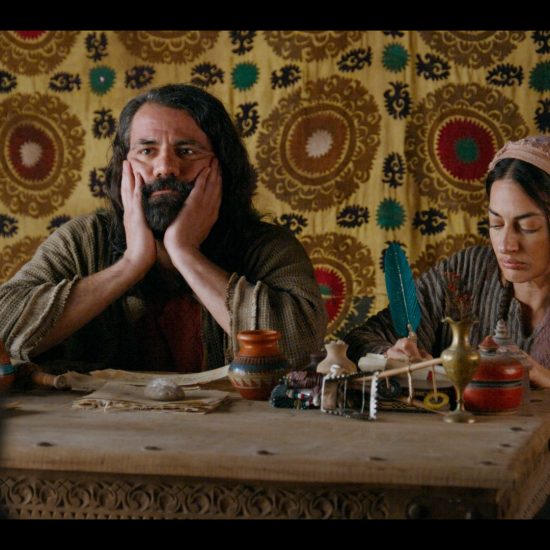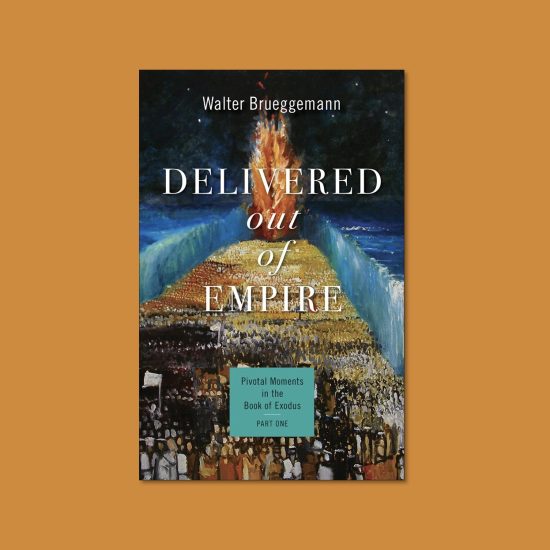 Compassionate and merciful
Compassionate and merciful
Formations: February 28, 2016
Scripture: Exodus 34:1-10
 Michael OlmstedThere is a common image, even in the modern church, that the Old Testament presents God as judgmental, wrathful, just waiting to punish us when we step out of line. The idea of grace, while appearing lovely on the written page, offers all kinds of loopholes for us to get away with almost anything.
Michael OlmstedThere is a common image, even in the modern church, that the Old Testament presents God as judgmental, wrathful, just waiting to punish us when we step out of line. The idea of grace, while appearing lovely on the written page, offers all kinds of loopholes for us to get away with almost anything.
When you compare the New Testament with the Old, well, you either must reread and rethink your ideas or take a closer look at Israel’s struggle to believe in and love the God, who is unlike any religious image you may create! Sometimes we are too much like Israel in the wilderness and too little like the followers of Jesus watching him ascend to heaven after the cross.
Lent is an opportune season to examine the power and promises of God who miraculously delivered Israel from hopeless slavery in Egypt and offers us new life through the Christ who died and took up his life again!
You would think, with the plagues in Egypt, the preservation of the firstborn of Israel when the death angel swept through that idolatrous land and the drowning of Pharaoh’s army in the Red Sea, that the now free Israelites would have no misgivings about the God who set them free. But here they are, on their journey to the Promised Land, suffering from spiritual amnesia, or thinking like selfish children, as they revert to former pagan ideas.
Israel’s pilgrimage has barely begun. Moses has been on the mountain where God gave him two stone tablets engraved with the laws of godly living. While Moses was with God the people in the valley below become impatient and probably fearful so they convince Aaron to craft a god for them in a familiar form, a golden calf, naming it their deliverer! (Exodus 32:1-20). Before the Ten Commandments had even been read in the camp they had violated the first two: “I am the Lord your God who brought you out of Egypt, out of the house of slavery. You must have no other gods before me” and “Do not make an idol for yourself” (Exodus 20:2-4).
Today’s text shows God giving Israel a second chance. Moses interceded for them (Exodus 32:11-14). Moses smashed the original tablets in anger and frustration. God gave his law to Israel a second time. As God speaks to Moses on Sinai, God identifies himself with the same name he used at the burning bush (Exodus 3:14-15).
This is a reminder that neither God nor his purpose for Israel has changed. But Israel has a lot to learn! God goes beyond stating the divine name (which was considered to sacred for a mortal to speak) to declare the characteristics of the Holy God (34:6-7). God is compassionate and merciful. This “compassionate” comes from the Hebrew word for womb, reflecting a mother’s feelings for her child. The word “mercy” means showing favor to someone when they least deserve it. God is very patient or God withholds justified anger and punishment so people may grow in faith. God is full of loyalty and faithfulness. The Hebrew word translated “loyalty” is chesed, meaning “steadfast love” or “loving kindness.” This chesed, “loyalty,” appears often in the Old Testament and is connected to the covenant between God and Israel.
A reading of the Old Testament reveals that God is often angered by Israel’s sins and he warns them of the consequences when they rebel and ignore God’s laws, when they compromise their faith and live as though God does not see what is happening. When we speak of God’s patience and love we must not overlook the consequences of sin. Hebrews 12:6 reminds us, “The Lord disciplines whomever he loves.” The violation of God’s laws for living a good and meaningful life brings harm to all of us. Do we really think God is so blindly benevolent that he will allow us to promote injustice and even death?
But discipline is not the definitive characteristic of God. The text reminds us that although the consequences of sin may be experienced as long as into “the third and fourth generation,” that this compassionate God “(shows) great loyalty to a thousand generations, forgiving every kind of sin and rebellion” (34:7).
In this second encounter with God, Moses worships again. Moses understands the weakness of his people because he is one of them. He is in awe of God, overwhelmed by the incomparable majesty of God and astonished by the gracious heart of God. There is no way to adequately define God with words or explain how moral perfection, pure love and ultimate power can be combined in one Being (the “I AM” of Exodus 3:14). To establish this second chance for Israel, this forgiveness and affirmation of the future, God repeats his covenant promise with “I’ll perform dramatic displays of power that have never been done anywhere on earth in any nation. All the people who are around you will see what the Lord does, because I will do an awesome thing with you” (v. 10).
We all need second chances. If grace were a tangible thing it would be battered and torn from being dragged through all our ups and downs. The gospel of grace is not a sweet little story. Read the amazing stories of Israel, the preaching of the prophets, the psalms of David. Repeatedly the compassion, mercy, patience and faithfulness of God keeps showing up in every chapter. This is our proof of God’s grace.
If we can begin to learn about God’s grace by going back to Genesis, we can discover the reality of that grace by going back to the beginning of our personal faith journey. Moses came down from Sinai to find Israel worshiping a golden calf. In anger and shame he smashed the original stone tablets. Was it because Moses remembered his own earlier failures and fears that he was able to pray for God’s forgiveness for Israel? Lent invites us to look within ourselves, to turn anew to God, to seek a renewed faith and the opportunity to help others experience God’s grace.
Retired after 45 years in pastoral ministry, Michael K. Olmsted enjoys family, supply preaching and interim work, literature, history, the arts and antiques.
Formations is a curriculum series from Smyth & Helwys Publishing, Inc. through NextSunday Resources.
The PDF download requires the free Acrobat Reader program. It can be downloaded and installed at https://get.adobe.com/reader.



